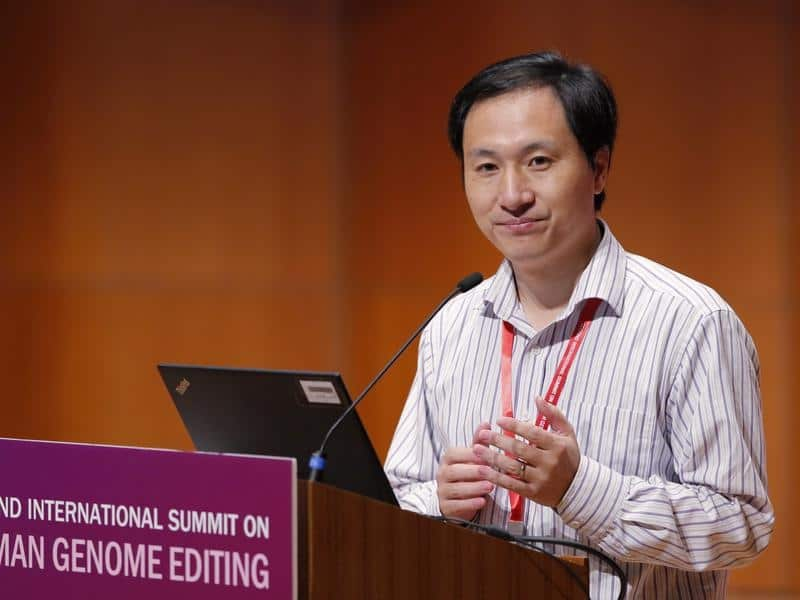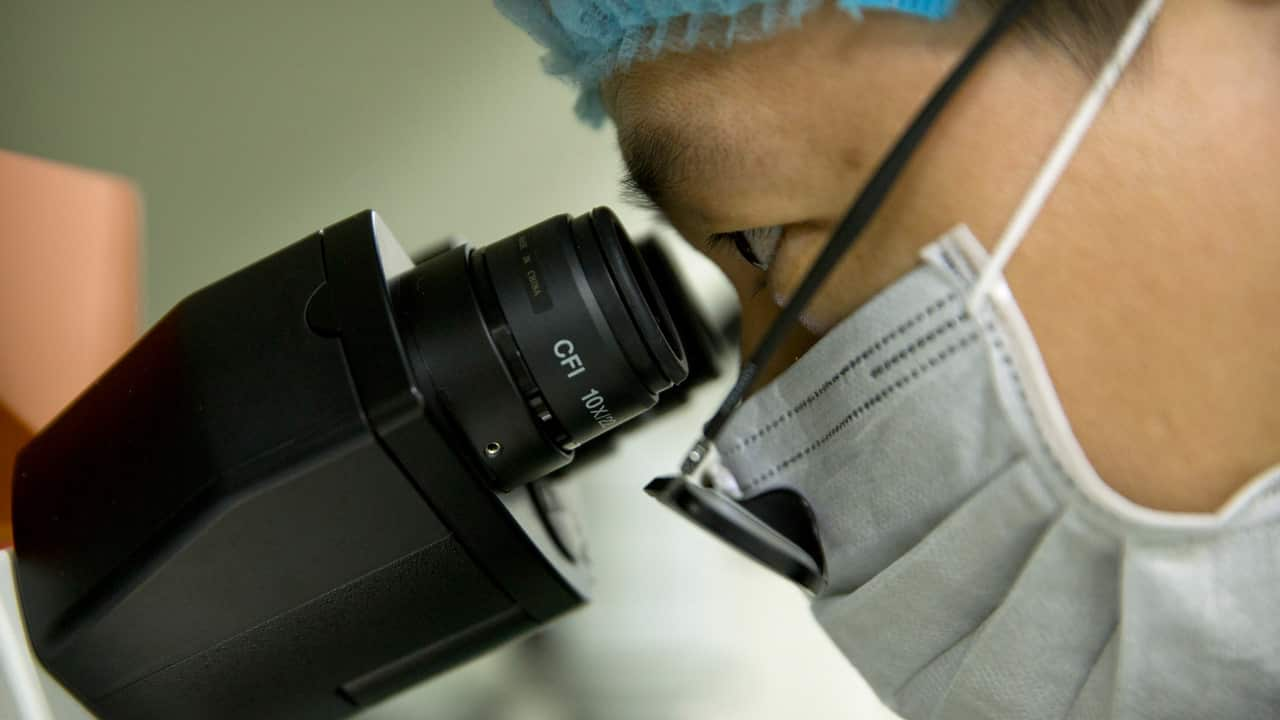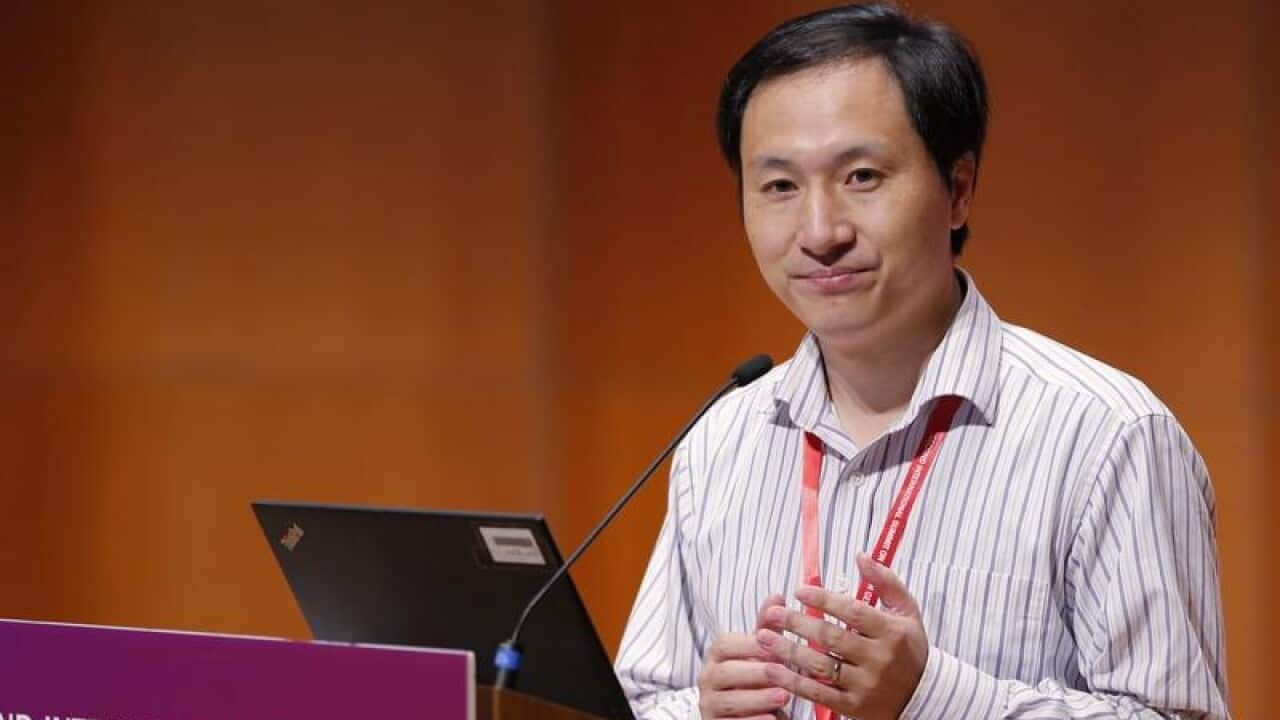A Chinese scientist embroiled in a controversy over what he claims are the world's first genetically edited children says he is proud of his work and has revealed another volunteer is pregnant as part of the research.
He Jiankui, an associate professor at Southern University of Science and Technology in Shenzhen, addressed about 700 people attending the Human Genome Editing Summit at the University of Hong Kong on Wednesday.
"For this case, I feel proud. I feel proudest," He said, when challenged by several peers.
"This study has been submitted to a scientific journal for review," he said. He did not name the journal and said his university was unaware of his study.

He, who said his work was self-funded, shrugged off concerns the research was conducted in secrecy, explaining he had engaged the scientific community over the past three years.
In videos posted online this week, He said he used a gene-editing technology known as CRISPR-Cas9 to alter the embryonic genes of twin girls born this month.
He said gene editing would help protect them from infection with HIV, the virus that causes AIDS.
But scientists and the Chinese government have denounced the work and a hospital linked to He's research suggested its ethical approval was forged.
Conference moderator Robin Lovell-Badge said organisers were unaware of the story until it broke this week.
CRISPR-Cas9 allows scientists to essentially cut and paste DNA, raising hope of genetic fixes for disease. However there are concerns about safety and ethics.

More than 100 scientists, most in China, said in an open letter on Tuesday the use of CRISPR-Cas9 technology to edit the genes of human embryos was dangerous and unjustified.
"Pandora's box has been opened," they said.
He's research focuses on genome sequencing technology, bioinformatics and genome editing.

